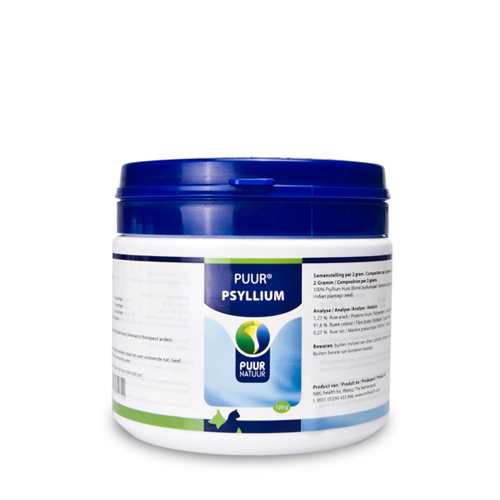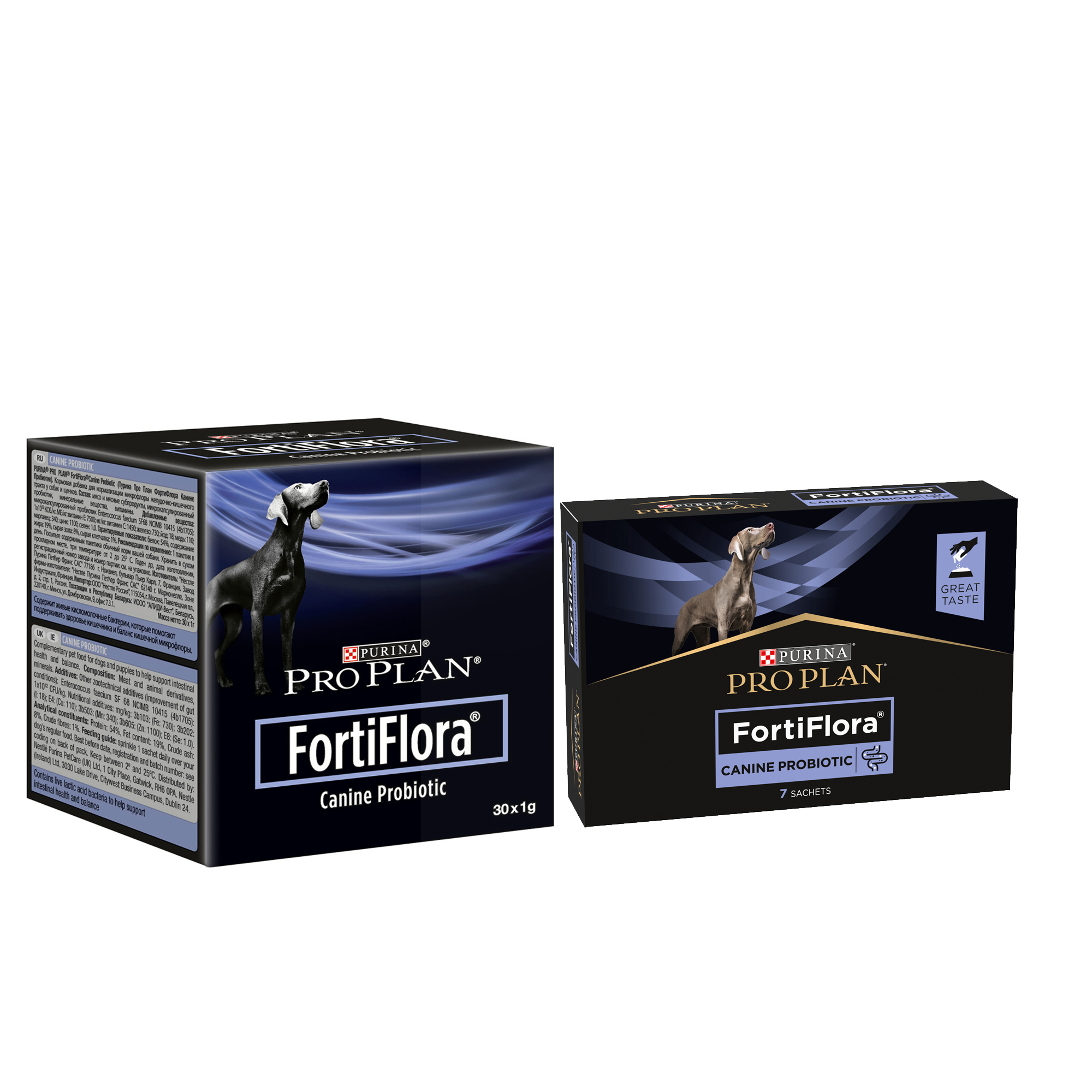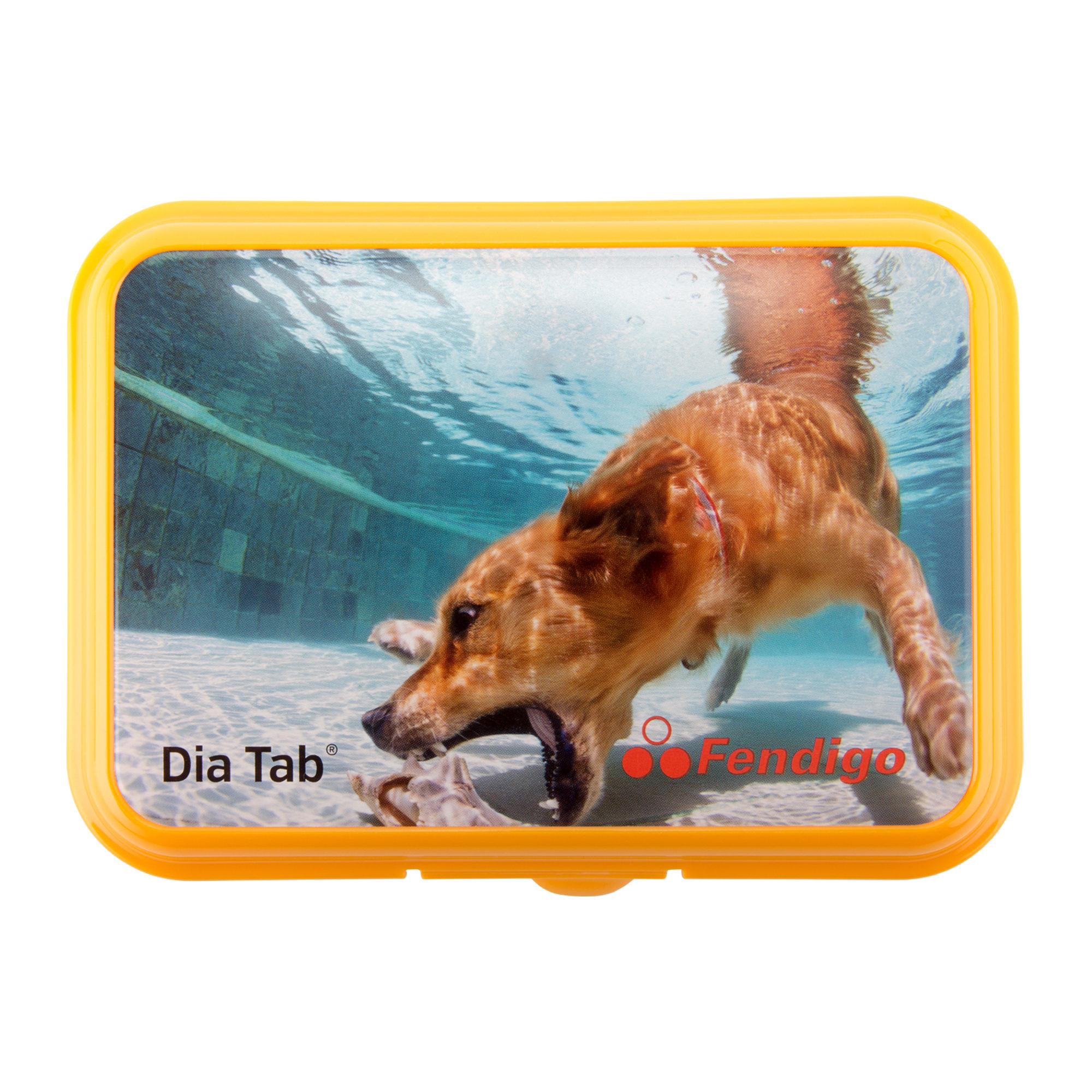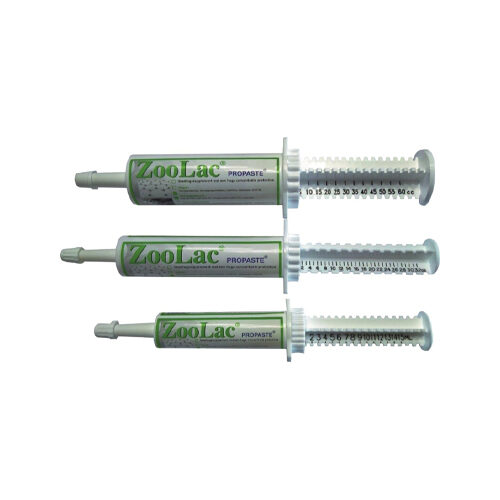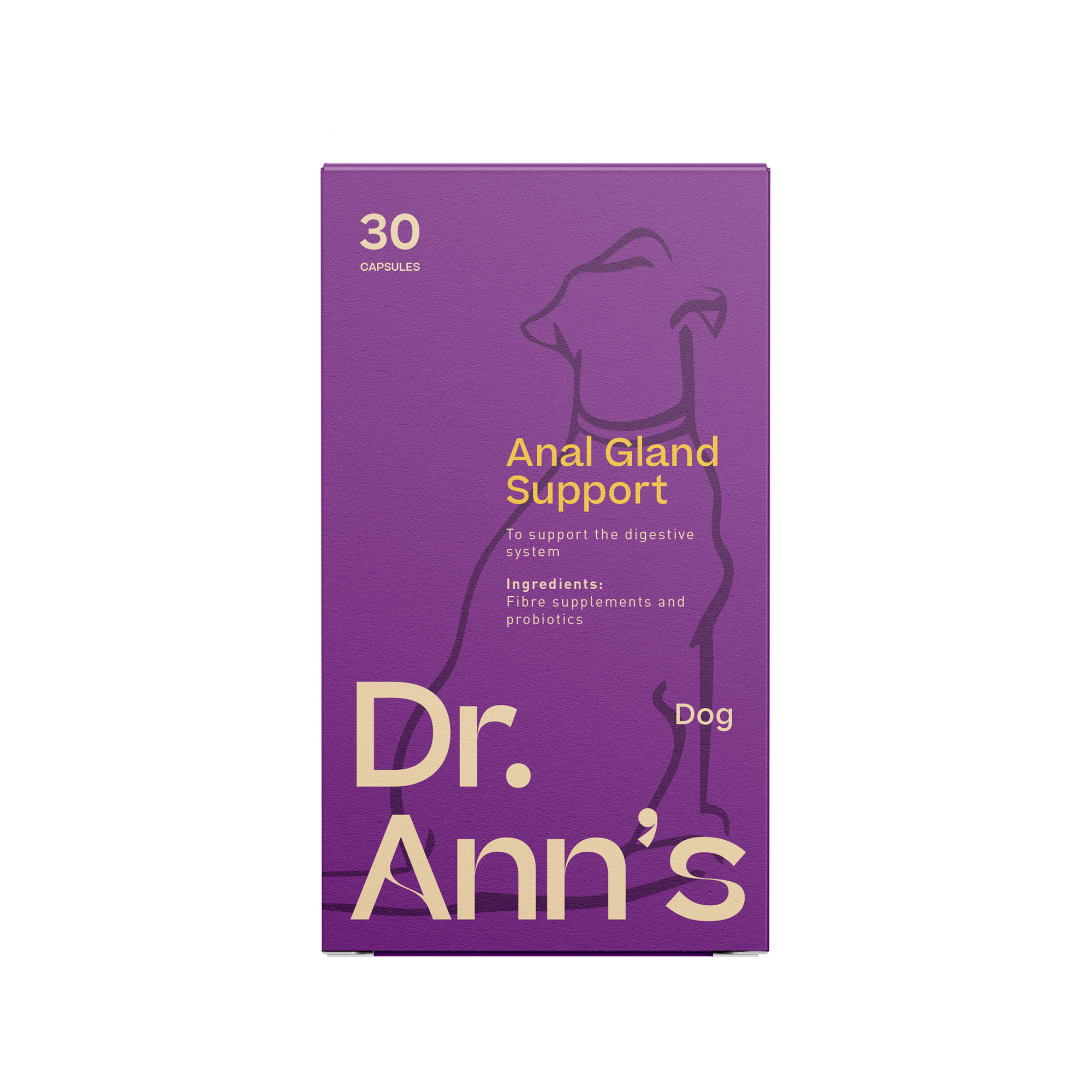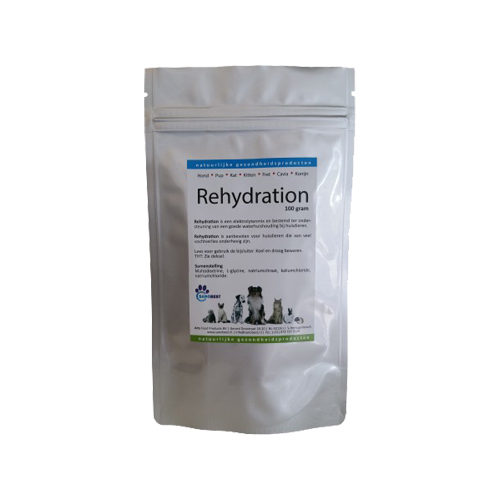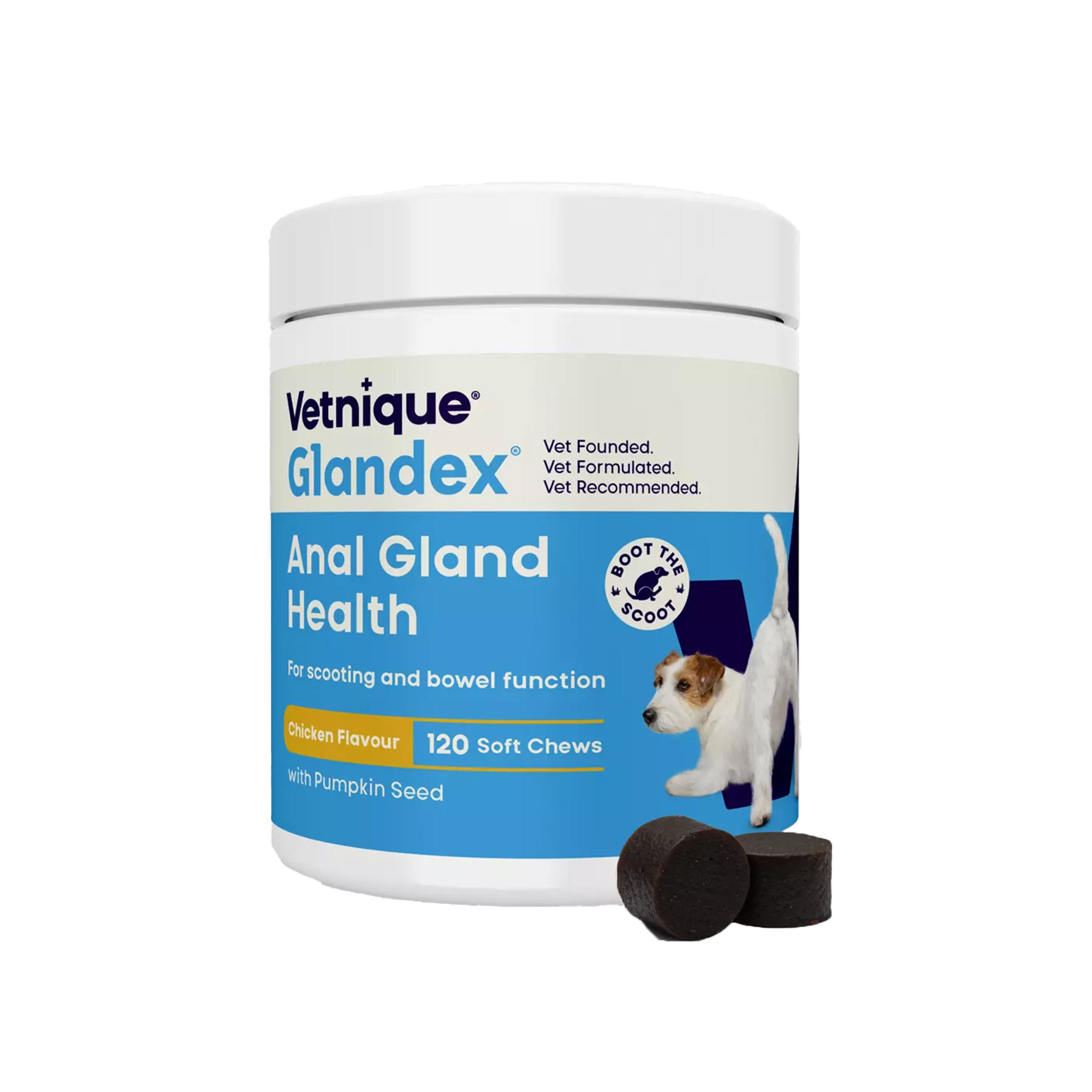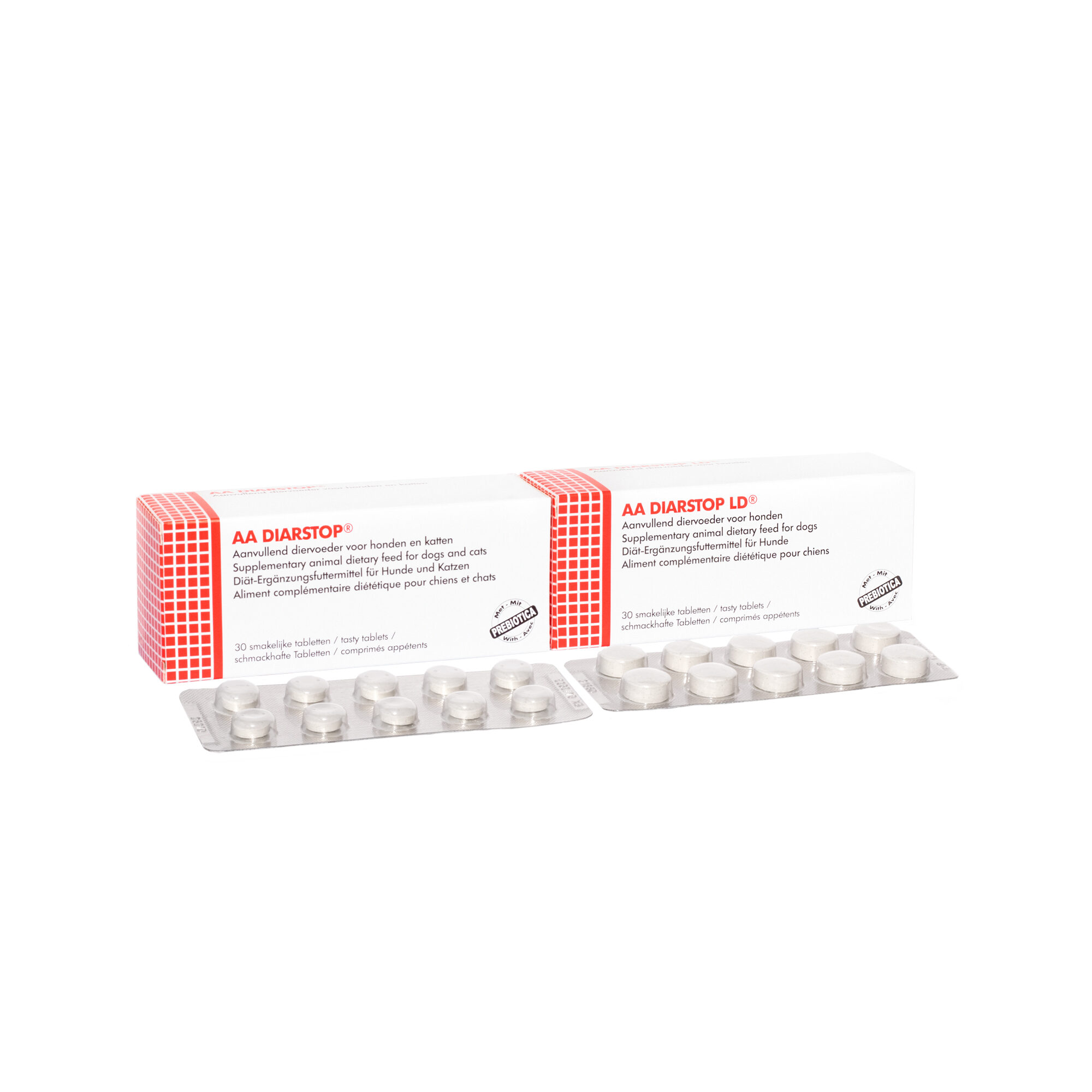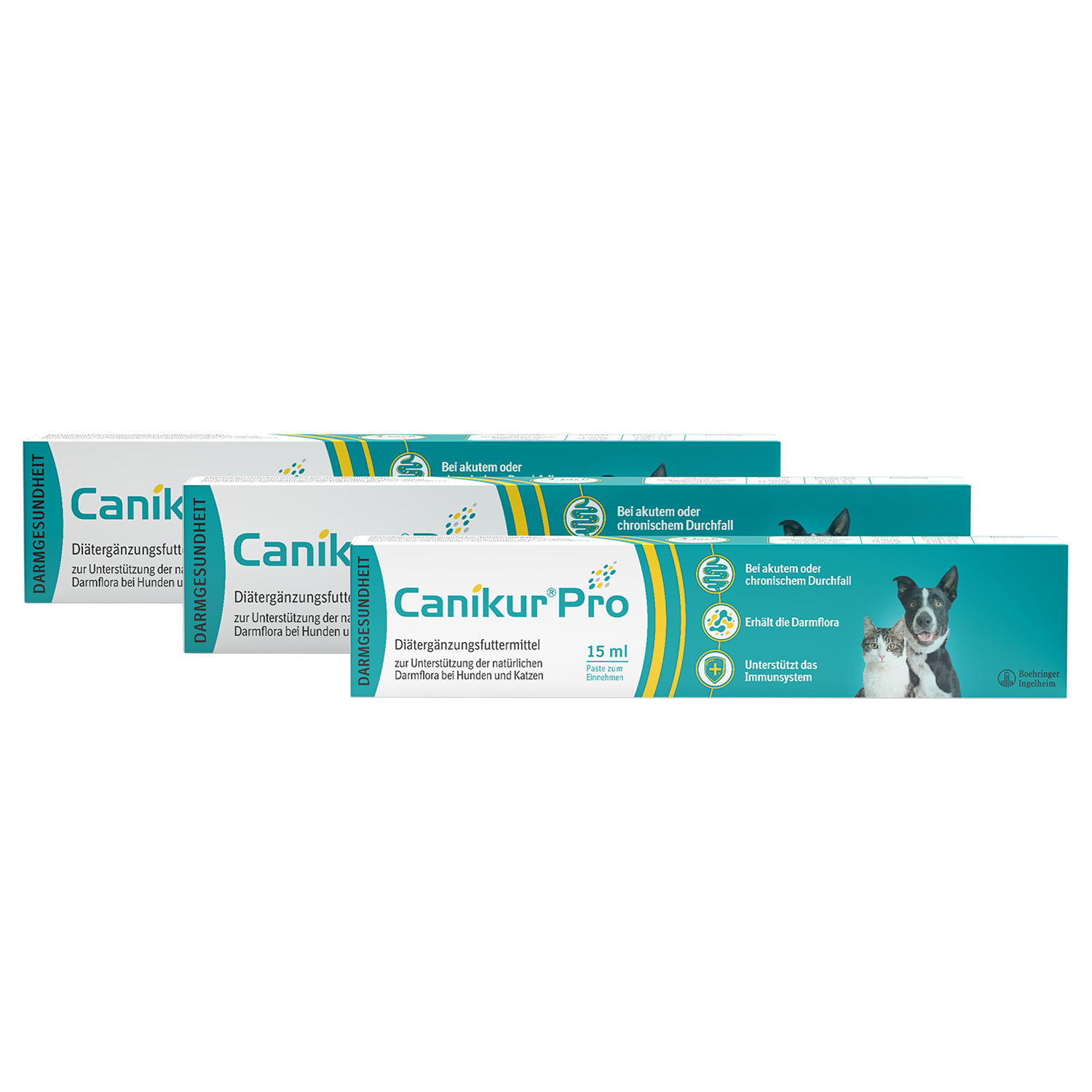Gastrointestinal disorders in dogs
If the gastrointestinal system is not working properly, there are symptoms that might be noticeable, such as nausea, vomiting, passing gas, constipation, diarrhoea, loud bowel movement, weight loss, poor condition, fatigue and a loss of appetite, with varying levels of severity. The symptoms your dog displays might give an indication as to the specific gastrointestinal problem that they are suffering from.
Diarrhoea in dogs
The most common cause of acute diarrhoea in dogs is eating or drinking something that is bad for them, such as food found on the street, contaminated water or nutrients unsuitable for canine consumption. Another common cause includes worms or parasites, antibiotics or certain medication. There are noticeable differences in diarrhoea, such as consistency, colour, smell, the need to push, the frequency of occurrence and whether it contains slime or blood. Chronic intestinal problems can indicate issues with digestion, auto-immune disease or food allergies. The latter usually consists of an allergy towards one or more types of protein or grain. By using the elimination method, where the dog will receive only one type of protein that he has not eaten before, the right type of food can be found that can ease these symptoms. Once the symptoms are gone and the dog is able to eat the one-protein diet, it is possible to try and add a source of carbohydrates. It is also possible to put your dog on a hypoallergenic diet, which contains processed proteins that are not recognised as such by the body and so do not provoke a reaction.
How to support your dog
There are different products available that support the intestinal flora, such as prebiotics, probiotics, anti-diarrhoeals, digestive enzymes and easily digestible foods. Severe diarrhoea or vomiting can quickly lead to dehydration, which in turn can lead to even more serious issues. In these cases and in chronic cases it is advisable to contact your veterinarian.



